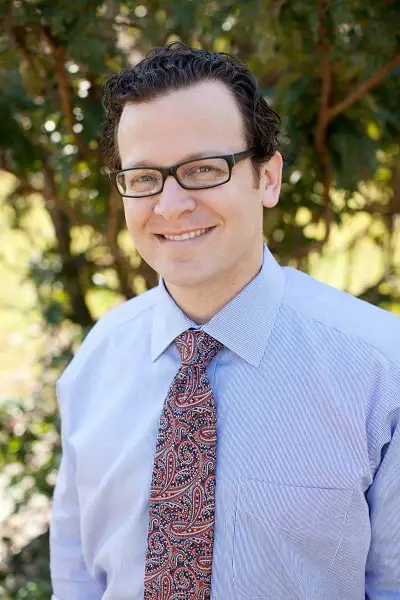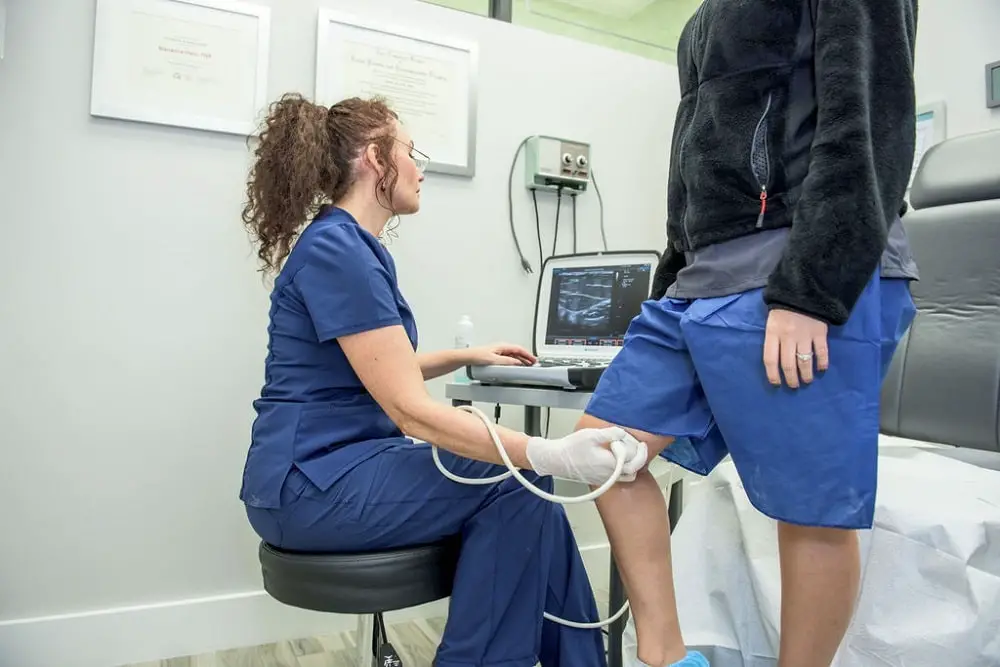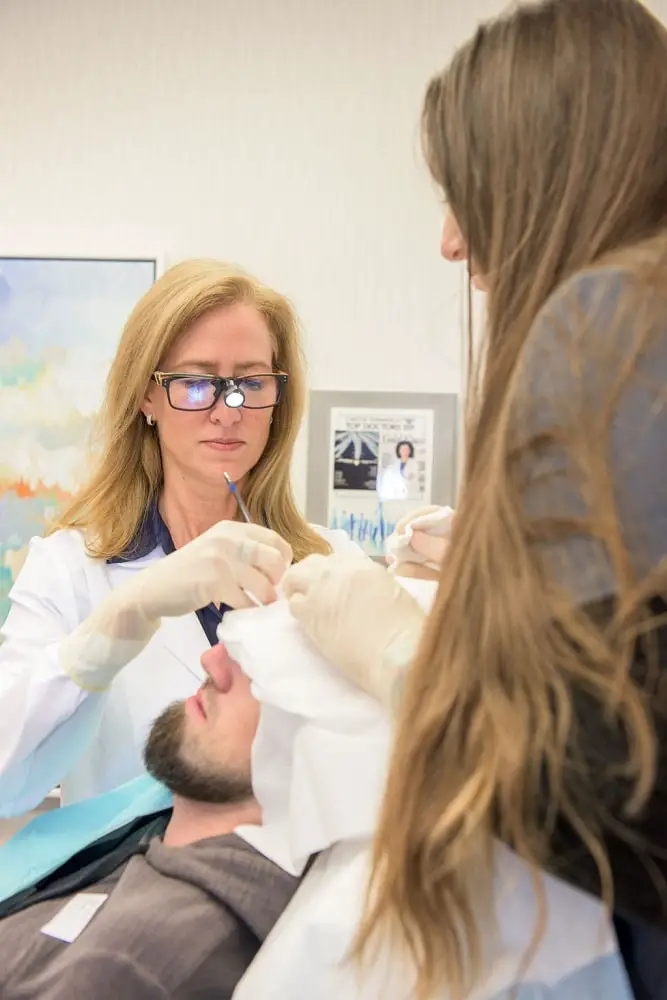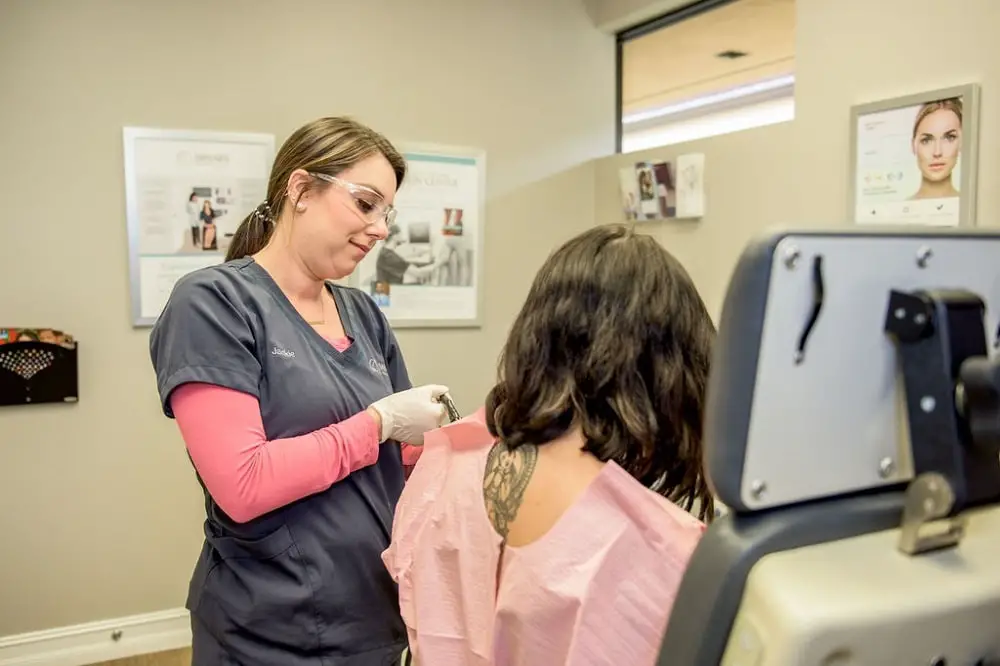Day in the life of
Board-certified Dermatologist – Todd Minars, MD

My Typical Day
As a dermatologist, your day will begin early, usually around 6 AM, as you’ll commonly see your first patient at 8 AM each day. So, I have to get ready. wake up and become really alert, and enjoy a brief coffee with a muffin on way to work. But once you’re in the office, it’s jam-packed until the end of the day. I work from 8 AM to about 6 PM Monday-Friday with a 90-minute lunch break for office hours (ie: emails, calls, peers, etc.). During most days I’ll see about 20 to 25 patients or another way to frame that, I see 2-3 patients per hour.
The interesting thing about dermatology is the range of things we see. For example, the difference in our patients’ ages and reasons for visiting. I may walk out of a visit with a parent and their newborn and cross the hall to have a 90-year-old in the next room. We see a lot of “minor” conditions like acne and warts but also may see a serious skin cancer or blister rash or I even once had someone walk in the door with Leprosy. Dermatologists see medical conditions that require us to diagnose and prescribe a treatment plan. But we also do several small procedures throughout the day – we may inject a big pimple, then freeze a wart, then shave off a funny-looking mole to send in as a biopsy so it can be checked for cancer. A common visit in the last decade (but not in the first decade I practiced) is the “full-body check”. This is a person coming in to be “looked over” and checked for any suspicious moles or skin cancers. In addition to the above – sprinkled into the day will be a few simple surgeries (removing a cyst or small instances of skin cancer) and some cosmetic stuff like BOTOX or fillers.
Pros and Cons
The pros of dermatology are the sheer variety of circumstances as to why patients visit us and their diverse personalities and stories. It is intellectually stimulating with new things to learn all the time. In addition, I wear the second hat of a business owner. These days I do more in this role (and less dermatology), but I still see those 20-25 patients each day. Full-time or dedicated practitioners may see over 30 patients per day. However, as a practice owner, I’m always learning new things to improve our existing processes, become more efficient, and refine our patient experience.
The hours are also good and there are very few emergencies, like in some of the other medical fields. Because of this, I don’t have to be on call or get called into the OR on a Sunday at 4 PM. Initially, I wanted to be a surgeon or an ICU Doctor, but both of those would have been the opposite of this more predictable schedule.
Another “pro”, and I say this carefully, is that I rarely have to give detrimentally bad news. I like how in dermatology you’re able to tell a patient “Although it’s cancer, it’s just a little skin cancer and it will have no effect on your health – we will take it out and it should not bother you again”. However, this can become one of the Cons of the jobs, as once in a while, I will have to give bad news and that is the worst. I can’t imagine being an oncologist who would have to do this all the time, as the rare instances I have to notify patients of actually bad diagnoses that will impact their lives or be problematic, can be really taxing.
Another con, like much of the medical community, it’s a long and expensive process to get from an eager 19-year-old student to being a capable dermatologist that can see patients, open their own practice, and grow in the profession. I’ll go over it below, but it’s a very lengthy process that tests the resolve of many.
Advice to aspiring Dermatologists
Thankfully, if you’re considering a career as a dermatologist, you’ve likely already pondered the expansive schooling and effort that will be required to obtain your M.D. It’s pretty well-known that pursuing a Doctorate will be a marathon and not a sprint. This is not exclusively unique to medical careers, as it’s also seen to some degree with legal and other vocations where specialized training and education are required, but make sure you want to pursue this for many years to come. Or the entirety of your adulthood! Nothing would be worse than coming away from medical school with large student loan obligations and your 20s passed to only then realize it’s not what you want. But if you’re confident you want to work in medicine and enjoy one of the more calm fields (compared to such sectors as ER or trauma surgeons, oncology, etc.) I think it’s wonderful! The hours are great, we generally have positive interactions with our patients, and when we do have to alert them of bad news, commonly, we have effective and swift solutions for them. I’d say it’s relatively low-stress and I’ve had the great privilege of being able to spend time with my family and share our lives together without running out the door when my phone goes off at odd hours. I also don’t bring a lot of baggage home with me, which is a godsend in Medical, so that’s a very welcomed attribute of being a dermatologist.
You’ll need to remain flexible as you’re going through school and residency, but once you’re finished with that phase of the process and get some experience under your belt, you have a lot of options for how you spend your career. You can focus on clinical or cosmetic dermatology, go work with a large corporate group, work for smaller community/private practices, or go into private practice for yourself, such as I have. You can also work within education and help shape aspiring doctors on their journey. Obviously, all of these rely on you actually enjoying dermatology, so that’s why I suggest you confirm your passion for skincare and dermatology in advance.
Dermatologists
diagnose, treat, and help prevent diseases or other conditions of the skin.





.jpg)